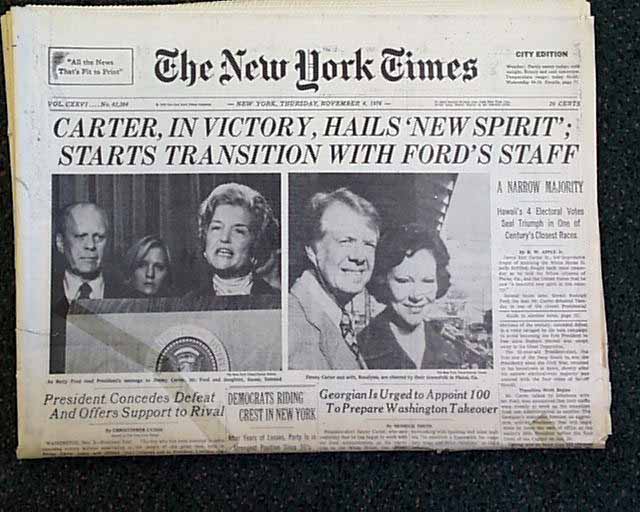Haaretz
There have been few presidents who entered office in a weaker position than Ford. Under him Saigon fell and the economy teetered.
But clashing with Israel was something he managed to do well.
The strained relations between Ford and Rabin, which never reached the level of warmth shared by their predecessors, Nixon and Golda Meir, was only a symptom of the diplomatic dispute. The Ford Administration wanted to strike up an agreement between Israel and Jordan, and achieve progress with Egypt. Rabin was a weak prime minister domestically, and was hard pressed to meet Ford’s wishes.
Ford had no real diplomatic experience. Nixon appointed him vice president when Spiro Agnew was caught in a corruption scandal – and when the president stepped down in the wake of Watergate, Ford became president for nearly 900 days. In any case, most of his work as president was cleaning up the mess left by his predecessor. Yesterday, America remembered him mostly for pardoning Nixon – a decision originally said to have destroyed the few chances he had of winning the 1976 elections, and later lauded as a courageous, appropriate move.
His March 1975 announcement that the U.S. policy in the Middle East would undergo a “reassessment” was not seen in similar light. More than anything, this was an expression of frustration over the failure of Kissinger’s “diplomatic dialogues” in bringing about further achievements in Arab-Israeli relations following initial successes.
Kissinger, who ran Ford’s policy and basically accused Israel of intransigence, encountered a crisis of confidence with Rabin. The prime minister thought Kissinger was lying to him – and the secretary of state was indeed lying. He had promised Rabin that he would not blame Israel for the crisis but did so anyway, also in his private briefings to the president. Ford was “mad as hell,” he says. A threatening letter to Israel was among the worst ever sent: “Failure of the negotiations will have a far-reaching impact on the region and on our relations,” the president wrote.
But his letter resulted in a humiliating letter from 76 Senators, demanding that the president “make it clear that the United States, acting in its own national interests, stands firm with Israel.” They taught him a lesson on the limits of his political power. Still, Ford managed to make some gains, in spite of the limitations imposed on him and his secretary of state by hawkish and dovish quarters alike. The government of Israel proved sufficiently flexible to allow a further agreement in Sinai, and used the American desire for a peace agreement to squeeze further aid from the U.S.
Ford presided over a transitional period. He reacted to events that his predecessors set in motion, but his short tenure, and perhaps his affable character, did not allow him to formulate new policy in nearly any area. The American public also proved reluctant to view him as a long-term leader. He was pressured from within his party by the charismatic Ronald Reagan, and from the left, an unknown governor from Georgia, Jimmy Carter, promised the American public what only an outsider could do: clean house.
Carter, in his inaugural speech best described Ford’s legacy: “For myself and my country, I want to thank my predecessor for all he has done to heal our land.”
